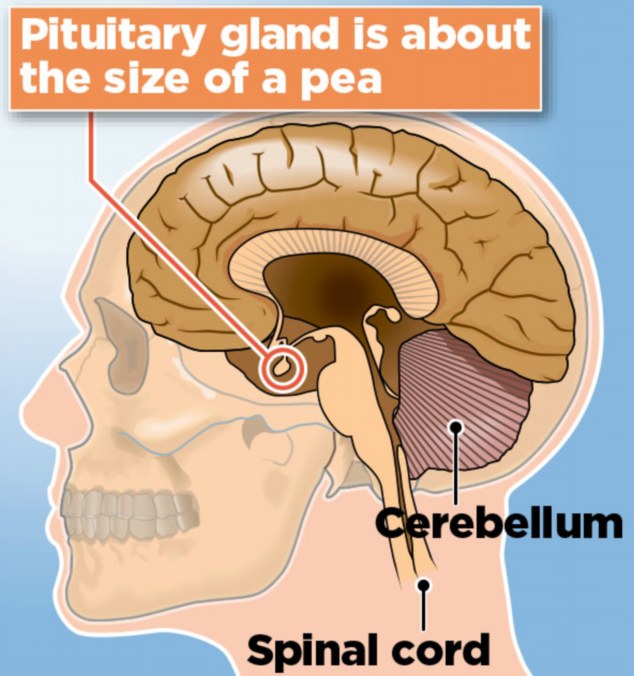Daily Mail
17 May 2014
How doctors are failing to spot the brain injury that could be behind 30,000 cases of 'chronic fatigue'
- Patients misdiagnosed with CFS when they have brain damage
- Post-traumatic hypopituitarism (PTHP) is often cause by head injury
- Symptoms include depression, obesity, fatigue and chronic pain
Thousands of British patients suffering from chronic pain and fatigue could be misdiagnosed with psychological problems when they unknowingly have a type of brain damage.
Those people who complain of the symptoms are not given a series of blood tests that can pinpoint the problem, meaning the true cause is not spotted. Patients are then condemned to years of misery and ineffective therapies.
The major cause of the damage is head injury, which can be relatively mild. However, viruses, tumours and even animal bites can be a trigger.
The National Institute for Health and Care Excellence was considering including the condition – called
post-traumatic hypopituitarism (PTHP) – in its most recent guidance to doctors on how to treat head injury.
It would have meant patients who turned up at A&E departments or GP surgeries with head injuries would be warned that the symptoms of PTHP – which also include depression, obesity, high blood pressure, loss of libido and even infertility – could take years to emerge.
However, when the new recommendations were published in the spring, there was no mention of the problem. The decision has been condemned as ‘nonsensical’ by an expert who treats PTHP.
Currently, patients who present with tiredness and chronic pain are often told they have chronic fatigue syndrome (CFS), or fibromyalgia, once other physical causes have been ruled out. They are offered psychotherapy, exercise and antidepressants. However, these are currently found to be ineffective in up to 70 per cent of CFS cases.
Numerous studies have shown that between 20 and 30 per cent of the 135,000 patients who suffer a serious head injury also experience damage to the pituitary gland, which is situated below the brain, behind the nasal cavity.
The gland produces vital hormones that govern many bodily functions, including growth and repair, the sleep-wake cycle and how we react to stress. If the pea-sized organ is damaged, it may stop producing one or more of the essential hormones, triggering the wide-ranging symptoms of hypopituitarism.
Studies suggest there could be between 18,000 and 30,000 cases in the UK each year.
Treatment involves lifelong hormone replacement therapy, which is said to be highly effective but costs up to £6,000 a year.
Professor Christopher Thompson, one of Britain’s foremost experts on PTHP, says: ‘The overwhelming evidence from research studies carried out independently in a wide range of places, including the USA, Europe and Turkey, is that hypopituitarism occurs in up to 30 per cent of people who have survived moderate or severe traumatic brain injury. There is no debate.
‘However, the failure to make the right diagnosis after such injury means patients miss out on essential treatment. That it’s not included in the NICE guidelines [for treatment of head injury] is nonsensical.’
...
Read more: http://www.dailymail.co.uk/health/a...-000-cases-chronic-fatigue.html#ixzz322IbpZZe

